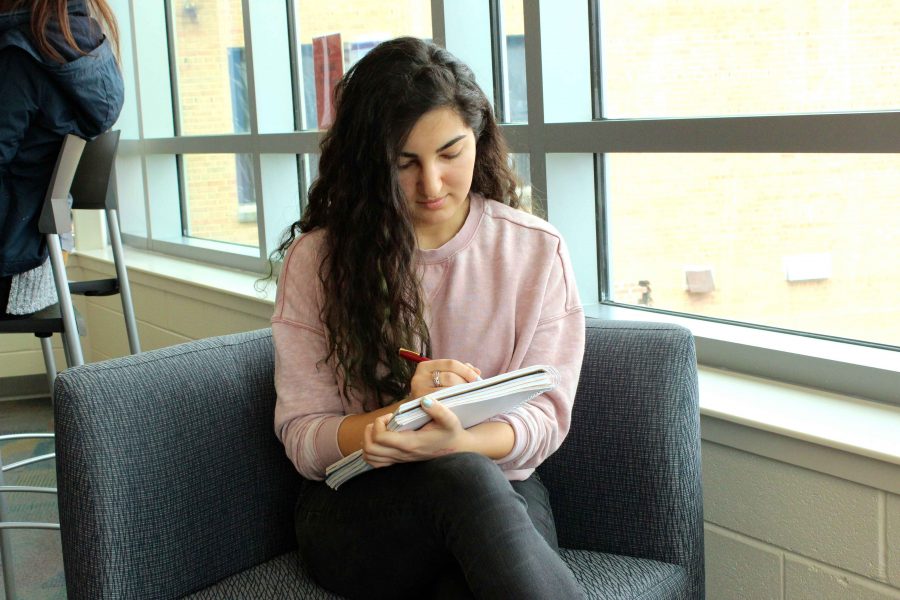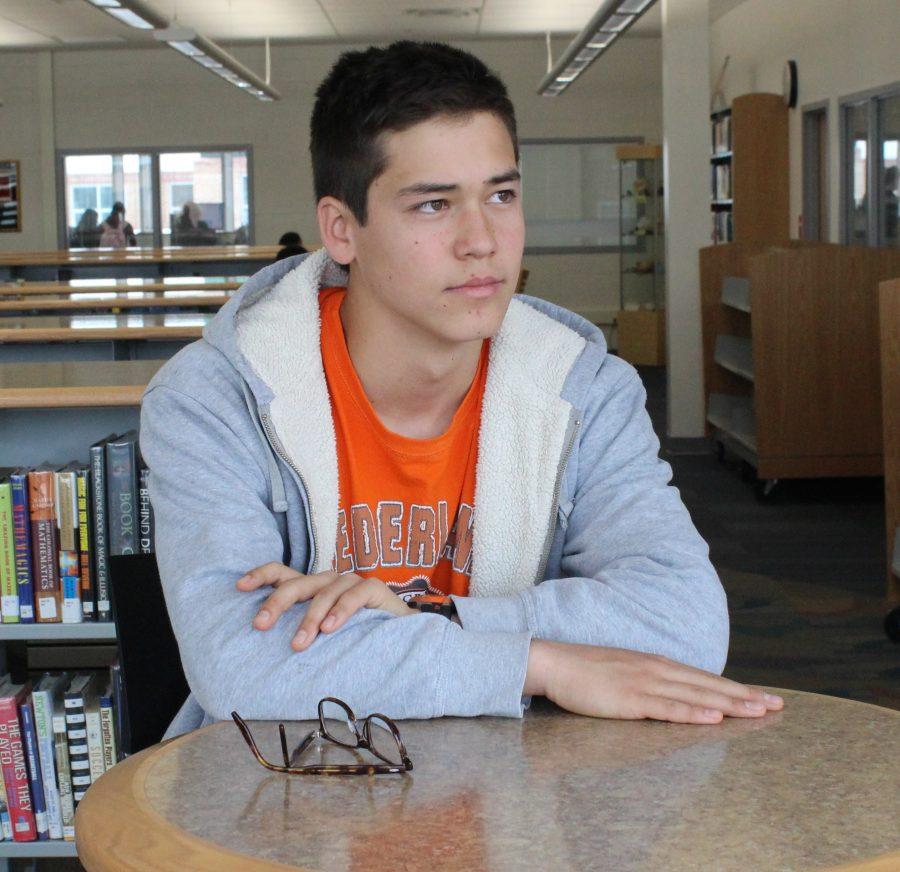The Poet Profiles
Published student-poets Bita Saaedi and Alexander Kao-Sowa reveal their writing processes, their inspirations, and how they find time to write outside of school
April 30, 2016
BITA SAAEDI

When did you start writing poetry?
I think I started in 6th grade. I remember that my 5th grade teacher did a unit on poetry that really fascinated me. It was really terrible in the beginning, but slowly I just started writing more and more and just figuring out my own style.
What inspires you to write poetry?
I suppose it can be anything, even another poet’s work. For example, if I read something I really like and that inspires me to create something. Anything that happens in my day-to-day life can show itself in my poetry, like big life events or even stories that other people tell me. One of the poems I wrote—not in threshold—was based on an article I had read about a survivor that jumped off the golden gate bridge.
What kind of poetry do you write—free verse, metered, sonnet, etc.?
I always write free verse. Pretty much all my poems have no capitalization or anything. I like how unstructured it is; it feels like you have a lot more freedom to get your thoughts down. When you rhyme, it limits your word choices. I like not having not to worry about rhyme scheme or structure.
Do you only submit to threshold, or have you also submitted elsewhere (like Scholastic)?
I haven’t submitted to anywhere except Threshold because a lot of my poems are pretty personal. I only worked up the nerve to submit last year because two of my friends who are editors convinced me to.
It’s really difficult to share something that’s so personal; you’re worried that when people criticize your poem, it’s a reflection of yourself. Submitting to threshold helped me get over my fear of criticism.
How have you found time to write poetry outside of school?
Sometimes, I’ll go a couple months without writing a single poem. When I do have time, I’ll sit and write a bunch of poems at once. Some will be awful and I’ll just completely trash them. I’ll try to get all my thoughts down and just wait a little bit and then come back and refine them.
If I get a sudden moment of inspiration when I just have an idea, even in class or before bed, I’ll just write it down quickly and get back to it. I tend to break it[the writing process] up into smaller pieces.
What would you tell other students about poetry?
If anyone has ever considered writing poetry, just give it a try and don’t worry about whether it’s good or whether or not people will like it. It’s more for yourself before it’s for anyone else.
ALEXANDER KAO-SOWA

When did you start writing poetry?
Ever since I was around 5 or 6. It was pretty bad back then, but it was a way to express myself.
What inspires you to write poetry?
Typically, I stay up really late at night and then [I] get a little more creative. It’s always the outdoors that inspires me, never the indoors. I’m always outside at night, either walking my dog or just sitting on the porch.
What kind of poetry do you write—free verse, metered, sonnet, etc.—and what do you write about?
Anything; a lot of it is free verse. Typically just my views on things my views on life, death, [and] common things. It’s really just whatever strikes my fancy. There’s no particular rhyme or reason as to what I write about; there’s no set time and place when I go and I say I’m gonna pop out three poems out in the next hour.
Do you only submit to threshold, or have you also submitted elsewhere (like Scholastic)?
I will [submit elsewhere] but I don’t think my poetry’s been up to par [until] this year. It’s been getting lot better. I wrote some and I was like, oh, I think I’m going to definitely submit to some contests next year.
What is your writing process?
Typically poems don’t take that long, as long as you have the inspiration. I’ll be outside because my mom makes me walk the dog and it’s dark out and I’ll get inspiration. I’ll come home and 5-10 minutes later, it’s on paper. The day after, I review it and I’ll say what was good, what was bad, and more often than not, I’ll just scrap the whole thing.
How have you found time to write poetry outside of school?
For me, it doesn’t take that long outside of school. If it does take a long time, there’s always the bus. I just kind of make use of the free time I have instead of just sitting there twiddling my thumbs.
What would you tell other students about poetry?
A lot of people think that poetry’s kind of wimpy, kind of gay… It’s really not. You don’t have to share it with anyone.
But I submit to Threshold just cause ‘eh, screw it,’ I have some pieces, I might as well just submit them because I’m part of the staff anyway. It’s a really good way to express yourself and your feelings, just to put [them] on paper. [They’re] not just rolling around in your mind. You have it [poetry] on paper. You have that solid idea. It helped me figure out my own thoughts on a lot of subjects like dying. I had a tennis coach who died when he was teaching me, and poetry helped me come to terms with how his death, while sad, was still an unchangeable part of life. Rather than mourn him for months, I acknowledged that it happened and was a terrible thing, and then moved on.
Writing poems made me accept his death and then put it behind me.





